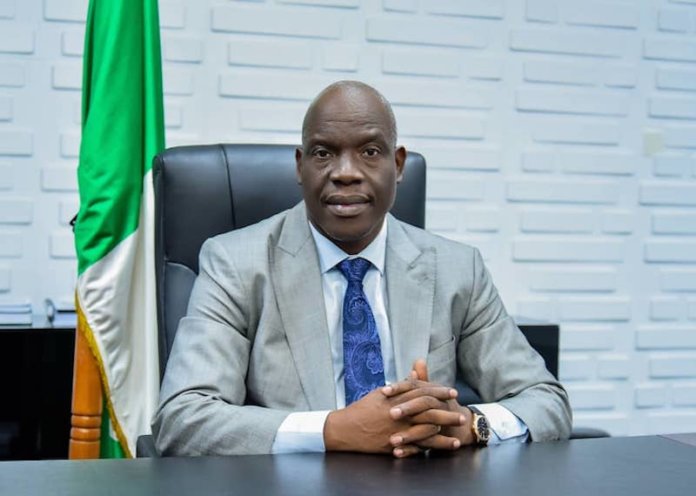The Nigerian Upstream Petroleum Regulatory Commission (NUPRC), Chief Executive Officer (CEO), Gbenga Komolafe, has said despite the global energy transition due to net-zero carbon emission, various opportunities still abound in Nigeria’s petroleum industry.
According to him, the Commission is poised to fast track the opportunities by putting in place the parameters that would accelerate growth, stability and sustainability in the country’s oil and gas industry.
He said the NUPRC will implement the growth measures in partnership with stakeholders to enhance the gains of recent reforms in the industry.
He said the Commission will also facilitate a shift in the regulatory landscape.
The NUPRC chief made this known in a presentation he made during the NUPRC Strategic Dialogue with the industry titled: “Fundamental Shift in NUPRC in a Time of Transition.”
Komolafe also noted that the commission had set the target of growing Nigeria’s oil reserves to 40 billion barrels by 2030 and is poised to grow Nigeria’s gas reserve to 210 TCF by 2030 and raise the country’s oil production capacity to three million barrels per day and gas production capacity to 12 Bscf within the same time frame of 2030.
He explained that the shift from fossil fuels to greener energies would have implications for developing nations, which would struggle to cope with the trend even with abundant resources while the already developed nations would have a good head start.
Komolafe specified that the roles of the commission under the new dispensation in the oil and gas industry include being the regulatory agency responsible for the technical and commercial regulation of upstream petroleum operations; and administration of petroleum laws and statutes as well as implementing upstream policies on oil and gas in Nigeria.
The commission’s roles, according to him, covered, “supervision and monitoring of all upstream petroleum industry operations carried out under licences and leases in the country,” as well as “promoting an enabling environment for investment in upstream petroleum operations”.
According to Komolafe, the NURPC will “ensure compliance with a commercial and technical legal framework to ensure efficiency, transparency, and fairness.”
The insistence on compliance, he said, would “optimise government takes from the hydrocarbon resources; administer and manage oil and gas acreages and concessions in Nigeria,” and drive the “conservation of and sustainable development of the nation’s hydrocarbon resources; maintain a petroleum industry data bank.”
He also revealed that the NURPC would also concentrate on, “facility engineering initiatives; de-risking of frontier basins, grid system for acreages, decommissioning and abandonment fund; host communities development trust; gas development and monetisation; the impact of COP26 and our response as well as addressing crude oil theft.”
Komolafe stated that the commission’s focus on the development of regulations, environmental remediation fund; field development plan; reserves and production growth; accelerated reserves investments; asset stewardship for global competitiveness and cost-per-barrel profits and capital efficiency, is aimed at ensuring growth and cutting costs.


